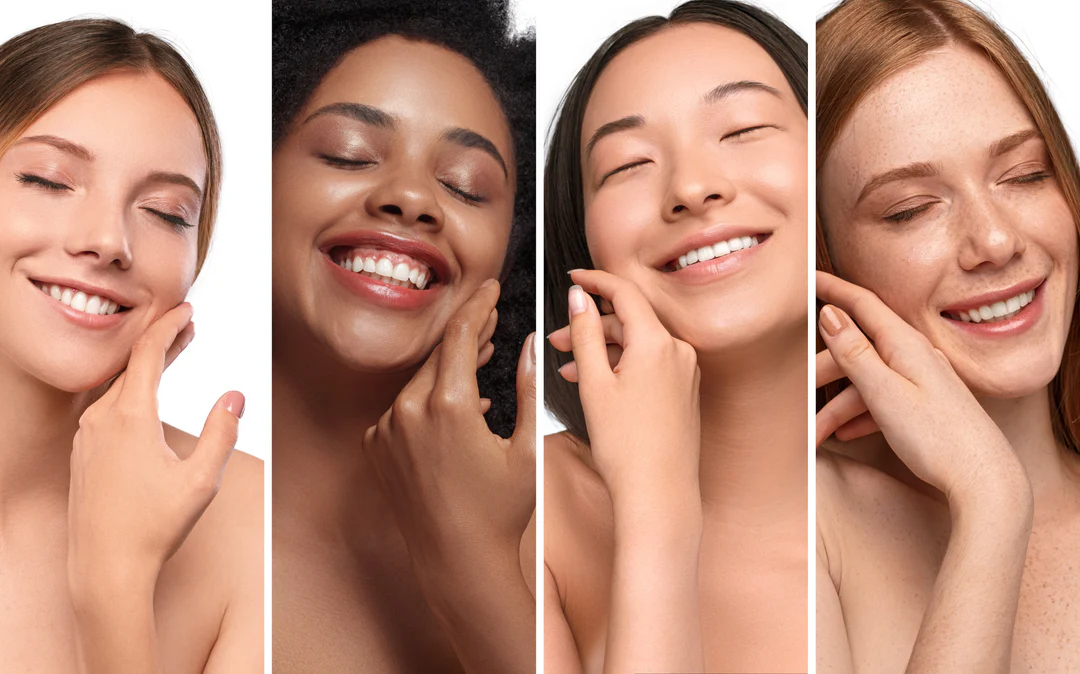
Can I use retinol while breastfeeding?
First of all, congratulations on the safe arrival of your new little one. It’s been a long 9 months, but the rewards are definitely worth it. The question you may be asking yourself, especially if you’re an avid skincare user, is: Can you use retinol while breastfeeding?
It can often be overwhelming and sometimes even frustrating when it comes to finding the best products that are safe for you and your baby. So before you go ahead and read today’s blog post, I strongly recommend that you consult your doctor before introducing any new skincare ingredients or products into your routine.
So without further ado, let’s dive into more information about using retinol while breastfeeding.
Why can’t you use retinol while breastfeeding?
Since retinol is one of the most potent skincare ingredients, it’s often considered a controversial choice to use while pregnant or breastfeeding. This is because, even when applied topically, it can be absorbed into the bloodstream and cause a number of effects and issues for your child, whether born or not.
Given the number of birth defects that can occur with using or taking retinol during pregnancy, there are a lot of studies that have shown that using or taking retinol during pregnancy can cause birth defects in the fetus. When it comes to breastfeeding and retinol use, there is no scientific evidence to suggest why using retinol while breastfeeding is considered a bad idea. But for peace of mind and to be aware of the negative effects retinol may have on your baby, it’s best to avoid any form of vitamin A or retinoid-fortified products until your baby is fully weaned and no longer at risk.
What skincare ingredients should you avoid while breastfeeding?
As you might have guessed, it’s not just retinol that should be avoided while breastfeeding. Other products, such as makeup, sunscreen, and anti-acne ingredients should be avoided. Here are some examples of ingredients you should avoid until you’re done breastfeeding.
Retinol
Retinoic acid
Retinoids
Beta-hydroxy acid (BHA)
Salicylic acid
Davrin
Oxybenzone
Benzoyl peroxide
These ingredients are listed on the packaging, but if you have any questions, consult your doctor before applying any product to your skin. The best ingredients for skincare during pregnancy and breastfeeding are those that are considered non-comedogenic, which basically means they won’t clog your pores. I will explain more about this in the next section of today’s post.
What skincare products can I use while breastfeeding?
If you already had a well-established skincare routine before pregnancy, you might be eager to apply it all over your skin. God knows you will need your favorite serums and lotions after nighttime and early morning feedings. The only problem is that it’s not just during pregnancy that you need to be careful when applying formulas to your skin. As I’ve already suggested, there are some ingredients you should avoid completely, and I know that can be daunting, especially if you’re desperate to reap the benefits of retinol again. Don’t worry, because I’m now going to tell you about some safe and effective alternatives to use while breastfeeding.
Replace Retinol with Peptides
Admittedly, if you’re looking for a quick and impressive way to fight the signs of aging, nothing is more effective than retinol. However, it’s highly recommended not to use any form of vitamin A. Therefore, the next best alternative is peptides. Peptides are chains of amino acids that work in the lower layers of the skin and stimulate the production of collagen and elastin. This will make the skin look plumper, younger, and more elastic without having to worry about the harmful side effects of retinol for you and your baby.
Swap salicylic acid for lactic acid
Salicylic acid can be effective in fighting acne and breakouts, but it is not recommended to use strong BHAs while pregnant or breastfeeding. You will still get similar exfoliating benefits if you switch to lactic acid, as the molecular size of lactic acid is very large, which means it cannot penetrate too deeply into the skin and cause irritation and other adverse reactions.
Other very useful skincare ingredients that can be used while breastfeeding include hyaluronic acid, niacinamide, vitamin C, vitamin E, and nourishing oils such as avocado.
Can retinol be used during pregnancy?
No, it is not recommended to use retinol at all during pregnancy. Once retinol is absorbed into the bloodstream, several defects that harm the developing fetus can occur. If you have any concerns about the skincare formulas you are using, stop using them and consult your doctor to make sure it is safe for you to continue using them in your daily life.
What does retinol do for babies?
Retinol, when used topically or taken in supplement form, can cause a number of problems for the developing embryo and fetus, often leading to miscarriage, premature birth, and a number of other birth defects, commonly known as fetal retinoid syndrome.
The reason retinol causes these problems is due to the increase in vitamin A. This vitamin is essential for the body to function properly and helps regulate cell movement, but when the embryo is exposed to excessive amounts, it can cause teratogenesis, which is a congenital abnormality and disruption of the fetus.
When should you stop using retinol before pregnancy?
You’ll be happy to know that it only takes 1-2 days for all remaining traces of Retin-A to be cleared from the body. If you’re planning on getting pregnant, I recommend not using retinol products for at least a week just to be safe. Once your baby is fully weaned or you decide to stop breastfeeding, you can reintroduce retinol into your skin care routine.
Here’s more information on using retinol while breastfeeding. As I mentioned before, it’s important to consult your doctor to make sure the products you use are safe for you and your baby.
Don’t forget to follow us on Instagram!


